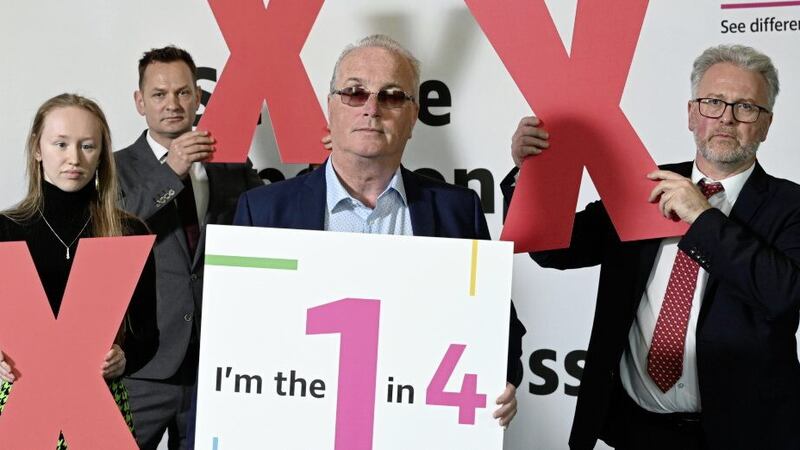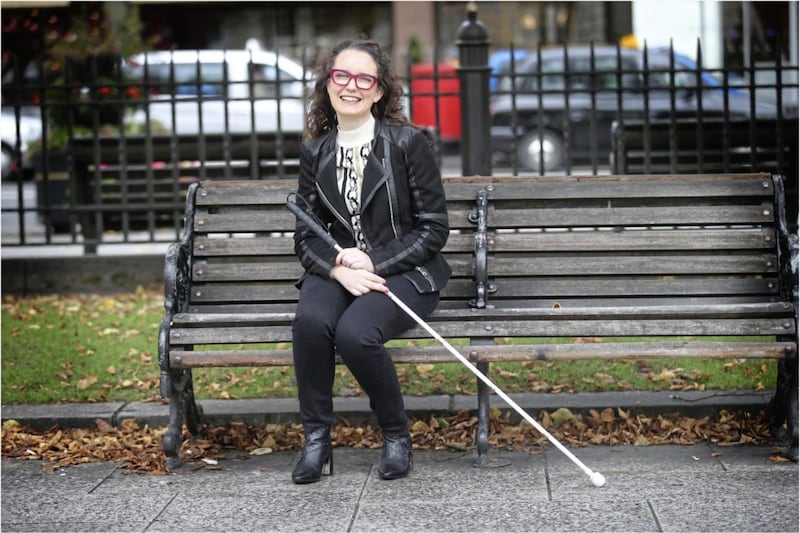CHARITY founder Richard Moore has called for more to be done to ensure blind people can access paid employment on the same basis as sighted people.
Mr Moore was speaking at the publication of a study which revealed only one in four blind people in Northern Ireland were in paid employment. The Royal National Institute of Blind People (RNIB) Eye Work With You Too study also revealed blind and partially sighted people with a degree or higher qualification only had the same chance of employment as an unqualified sighted person. The report was launched yesterday at Belfast City Hall.
The founder and director of the Children in Crossfire charity, Mr Moore has been blind from the age of 10 when he was hit by a rubber bullet in 1972 as he made his way home from school. Despite his blindness, he has been employed throughout his adult life. Following mainstream school and university, he worked as a bar owner, a musician, a director of Derry City FC, the managing director of Derry’s Drive 105 radio station and founder and director of Children in Crossfire.
Dr Rachel Hewett of the University of Birmingham, who carried out the study said attitudes to someone with sight-loss was the biggest barrier they faced in Northern Ireland. She said this was largely due to misconceptions of ability, leading to inaccessibility of recruitment practices and inadequate employee support.
RNIB NI director, Robert Shilliday said the region’s population was an aging one which remained in work longer.
“Employers need to be prepared to support employees who may develop a condition affecting their sight in the future and to ensure their recruitment practices are fair and accessible. There is the need and opportunity for change,” Mr Shilliday said.
Mr Moore said he was lucky to have worked all his life. He said this made a huge difference to his ability to live with blindness.
“When I came out of university, I did not see many prospects of getting a job and that was why I went down the self-employment route. But I find it hard to believe that so many years on, there 75% of blind people are still not able to get employment.
“This is about a change in attitudes and about realising that being blind does mean you can’t work,” Mr Moore said.
Other speakers included Geraldine Haire of NI Housing Executive who have seven blind and partially sighted people on its telephony team.
- This article was amended on November 25 2022





